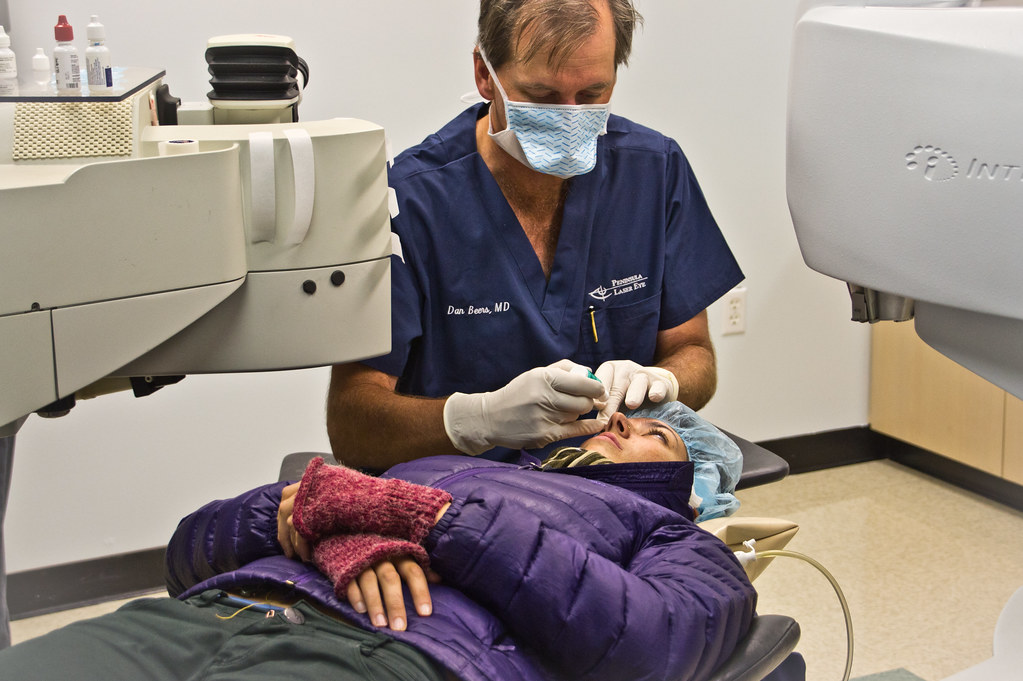Patients considering vision correction often turn to their eye doctor with questions about Lasik. While the procedure has been available for decades, it is key to understand how it applies to your individual situation. Lasik is not appropriate for everyone, and discussing your specific health history and eye condition with a professional helps determine whether it’s a suitable choice.
Confirming Candidacy for the Procedure
One of the first topics to discuss with your eye doctor involves whether you are a good candidate for Lasik. Not everyone qualifies, and eligibility depends on several factors including age, prescription stability, and corneal thickness. A thorough evaluation helps make sure the procedure is both safe and likely to succeed. Patients with certain medical or eye conditions may be advised to consider alternative treatments. Asking about candidacy early on helps clarify your options and prevents unrealistic expectations about what Lasik can accomplish for your specific vision needs.
Understanding the Technology and Techniques Used
Not all Lasik procedures are performed the same way. Technology varies by provider, and it is worth asking what tools and techniques will be used. Some offices offer bladeless methods or use wavefront-guided lasers that adjust treatment based on detailed eye measurements.
These variations may affect healing time, outcomes, and cost. Understanding what will be used in your procedure also helps you compare providers more effectively. Asking about equipment and methods is a reasonable part of making an informed healthcare choice.
Discussing Potential Risks and Side Effects
Lasik is considered safe, but like all medical procedures, it carries some risks. Dry eyes, visual disturbances, and under- or over-correction are among the possible outcomes. Most side effects are temporary, but ask how likely they are and what the recovery process involves. Your doctor should explain both common and rare complications so you can assess the procedure with full knowledge. Transparent discussions about risk are part of ethical medical care and should never be overlooked when deciding on vision correction.
Asking About Recovery and Follow-Up Care
The recovery timeline varies from person to person. Asking your doctor what to expect immediately after surgery and in the weeks that follow will help you prepare. Most patients experience some discomfort during the first day or two, but understanding when to resume regular activities is key.
Inquire about follow-up visits and how your healing will be monitored. These appointments are part of ensuring a successful outcome, and your provider should outline the schedule clearly. A well-managed recovery process supports long-term visual improvement.
Clarifying Financial and Insurance Questions
Costs associated with Lasik are often not covered by insurance. It is helpful to ask your provider what the procedure will cost in total, including pre-operative exams, post-operative visits, and any potential enhancements later. Some offices offer financing or payment plans, which you can also discuss. Understanding the full financial picture prevents surprises and helps you plan accordingly. Asking these questions upfront helps make sure that price does not become a barrier to appropriate care or follow-up services.
Asking how many Lasik procedures your doctor has performed and what their success rates are can provide helpful context. Experienced providers should be willing to share general statistics about outcomes, complication rates, and revision procedures. You may also ask how often they refer patients out or decline surgery due to risk factors. These responses give insight into how conservative or aggressive their approach may be and whether they prioritize safety and outcomes over volume.
Explore Lasik
Finally, talk to your eye doctor about what to expect in the long run. Lasik can reduce dependence on glasses, but it does not prevent age-related changes in vision. You should ask whether you might need reading glasses later or whether touch-up procedures could be necessary.

